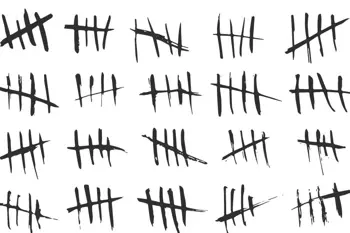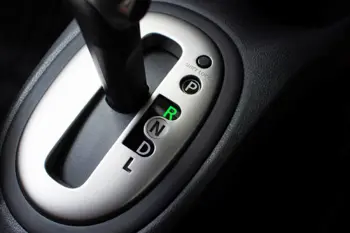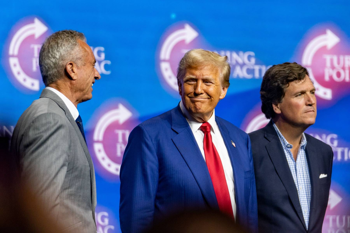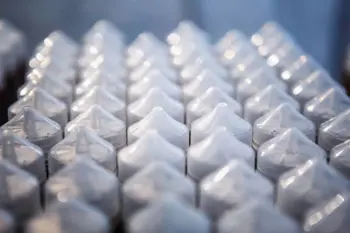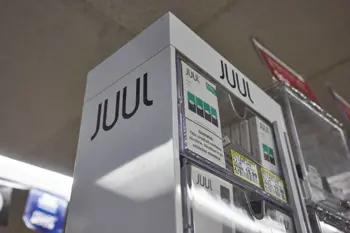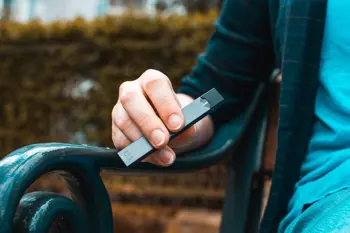Despite President Donald Trump’s campaign promise to “save vaping,” the FDA doesn’t appear to have changed course on vaping regulation and enforcement since Trump’s inauguration.
The agency has issued numerous marketing denial orders (MDOs) since Trump’s Jan. 20 inauguration---all except one going to small U.S. manufacturers. The FDA has also increased enforcement actions against vape imports, and continues to fight legal challenges against its decisions, now armed with Supreme Court approval of its shifting policy standards.
The agency has issued just one authorization of a vaping product during the first seven months of the Trump administration, for the JUUL and its tobacco- and menthol-flavored pods.
Based on those actions and recent statements from Trump’s FDA Commissioner Martin Makary, the agency seems intent on continuing the Biden-era war on vaping.
The Trump FDA has issued 40 new MDOs
On Aug. 19, the FDA issued an MDO for the blu Disposable Classic Tobacco 2.4% vape. The blu disposable is a prefilled cigalike-style device---one of the oldest vaping products on the U.S. market.
According to an FDA press release, the blu device’s premarket tobacco application (PMTA) was denied because of concerns over so-called “dual use,” meaning users vaping while also smoking, rather than switching completely to the vape. The FDA claims that this adds risk for users, despite the obvious fact that any amount of vaping reduces cigarette consumption.
Blu was the first independent vaping manufacturer to be acquired by a tobacco company, when it was bought by Lorillard in 2012. It was later acquired by Imperial Brands (formerly Imperial Tobacco Group)---one of the world’s largest tobacco companies---and is now manufactured by Fontem US, Imperial’s vape subsidiary.
In addition to the blu MDO, the FDA has announced seven other marketing denials this month, all issued in June and July to small American manufacturers: American Vapor Inc., DFW Holdings Inc., ECS Global LLC, Fumizer LLC, Texas Select Ventures LLC (Texas Select Vapor), Vapor Depot, and Vaporized Inc.
FDA moves Triton and other manufacturers’ PMTAs back into review
On April 2, the Supreme Court reversed the Fifth Circuit Court’s Triton decision and found that the FDA acted properly when it issued marketing denial orders (MDOs) for numerous bottled e-liquids manufactured by Triton and Vapetasia. However, the Supreme Court remanded the case back to the Fifth Circuit to consider whether the FDA’s lack of attention to the manufacturers’ marketing plans when rejecting their premarket tobacco applications (PMTAs) was “harmless error”---in other words, whether it would not have changed the outcome of the case.
Soon after, on April 21, the Supreme Court granted the FDA's petition and vacated a July 2024 Fifth Circuit decision in favor of five small vaping manufacturers that had challenged their MDOs under the same grounds Triton had. Those companies—Cloud House, Paradigm Distribution, SV Packaging, SWT Global Supply, and Vaporized Inc.—had also raised the issue of the FDA’s insufficient consideration of their marketing plans in their consolidated MDO appeal.
In July, the FDA voluntarily stayed all seven MDOs and placed the companies’ PMTAs back into review to consider the issue of marketing plans. The agency filed motions in the Fifth Circuit to hold the cases in abeyance until re-reviews of the companies’ PMTAs are completed and decisions rendered.
The PMTA re-review, wrote the FDA in its motion to the Fifth Circuit regarding the Triton case, “will address any remaining questions about the significance of petitioners’ proposed measures for reducing youth use and will thereby further the parties’ interests in the efficient resolution of this case.”
The companies did not oppose the FDA motions, and the Fifth Circuit granted both. However, the Triton attorneys provided notice that they intend to introduce additional grounds for a new appeal if the FDA again denies their applications, and additional briefing will be required.
There is no expectation that additional review by an FDA dead-set on denying any and all flavored vape products will result in different outcomes for any of these small manufacturers, or probably for any of the other companies that are challenging FDA denials in federal court.
Fifth Circuit denies two MDO appeals for Chinese device manufacturers
On July 23, two Chinese vape device manufacturers lost their MDO appeals in the Fifth Circuit Court of Appeals. In two separate decisions, the same three-judge panel decided for the FDA, rejecting petitions for review from Shenzhen IVPS Technology Co., Ltd. (SMOK) and Shenzhen Youme Information Technology Co. Ltd. (Suorin).
The two manufacturers are believed to be the only Chinese companies---and their products the only refillable devices---to receive MDOs from the FDA. Both companies received marketing denials in January 2024, SMOK for six devices and multiple pods and replacement coils, and Suorin for the Suorin Air device and its refillable pod.
The MDOs both cited youth use of the products, based on mentions by students taking the National Youth Tobacco Survey, and noted that refillable products can be used to vape “unauthorized” e-liquids. In both decisions, the court found that the FDA did not act arbitrarily or capriciously in denying the PMTAs and rejected the companies’ petitions.
The FDA has still not authorized a single open-system (refillable) product or any bottled e-liquid that would require a standalone device.

